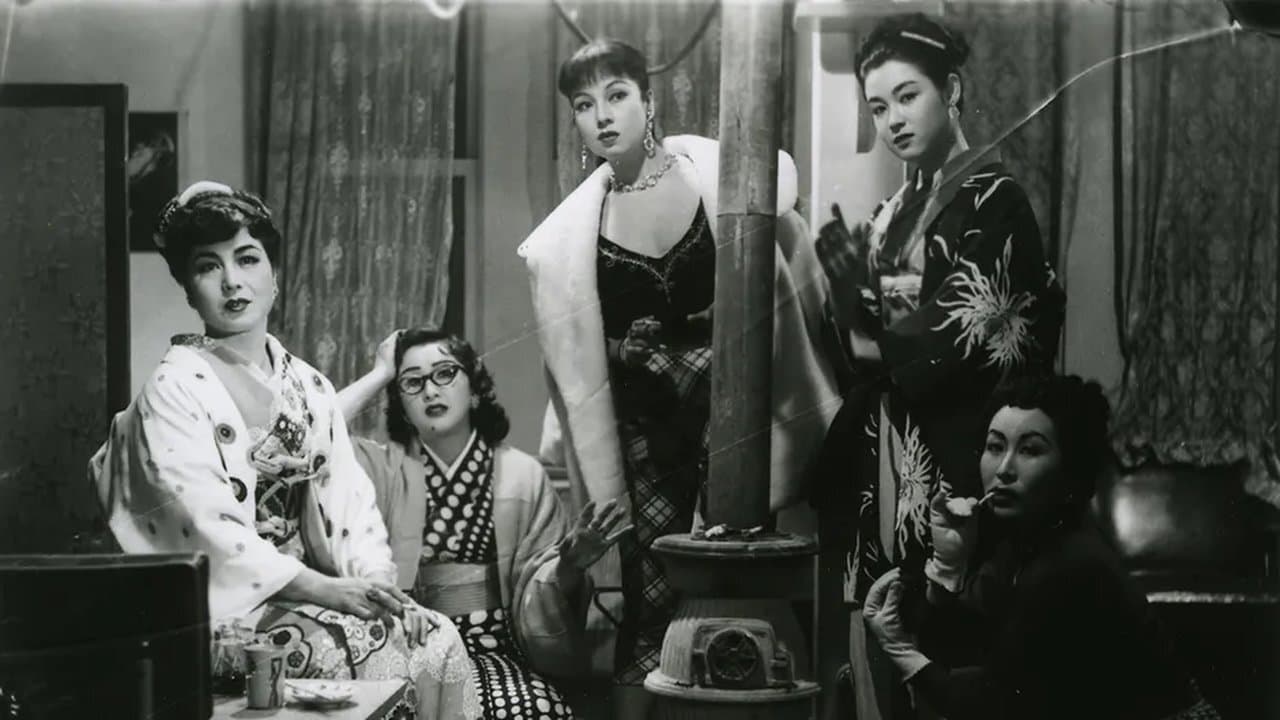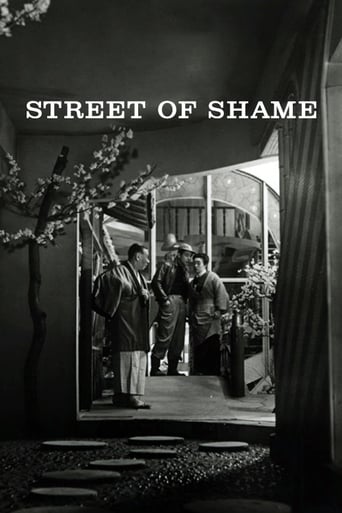

This is the first film I have seen from Kenji Mizoguchi (1898-1956), a director who is considered with Ozu and Kurosawa as the best Japanese film directors ever (I love Ozu; I like some Kurosawa but think he is somewhat overrated).This was Mizoguchi's last film: he is known mostly from his historical epics, but the theme here is somewhat topical, even taken from the newspapers of the day: the lives of prostitutes working on a brothel in Tokyo's red light district in light of a law being discussed in the Japanese parliament for the criminalization of prostitution (that particular law would come into force in 1958).Mizoguchi shows us the harsh life of the prostitutes, without turning them into saints, as we saw them doing less than exemplary things, for example cheating on their clients. There is the new arrogant girl, Mickey (Machiko Kyo), another prostitute with a grown son who is ashamed of his mother but visits her to her embarrassment; another one has to care for a sick husband.If the movie has a position in the issue is that prostitution should be legal. Prostitution is deeply rooted in Japanese culture, it is implied in the movie, and this law is being put forward only due to the pressures from Americans. The owner and the Madame of the brothel are hard-nosed but take reasonable care of the prostitutes. In this sense, the film sometimes seems a "message movie", even didactic in its position. Myself, I don't have a position on whether prostitution should be legal or not, but it would be interesting if Mizoguchi let at least one of the characters defend the other side of the issue.The film has an odd musical score (especially for a movie from the 1950s), which is a sort of Theremin -based experimental score. I can't say it helps the movie. Despite the misgivings I have mentioned, I did like the film, and found it interesting and engaging.
... View MoreThe personal tales of various prostitutes who occupy a Japanese brothel.Okay, so the opening music is wild. And then for most of the film the music is very mellow or non-existent. What are we to make of this? I have no idea.Criterion has put this film in their box set of Mizoguchi's "fallen women", appropriately enough. For over twenty years, he really captured women in questionable roles -- from adulteress to prostitute, and never did it in a way that exploited them or shamed them. He was honest and fair.Some people like his early work better, some like the later stuff. This is his last film, and indeed the polished look is far different from his earliest attempts. Good or bad? Hard to say. One wonders if the war could change a man and his art...
... View MoreUpon first glance, this may seem like Mizoguchi re-hashing the themes and methods from his more successful films. And a lot seems to be read into the fact of this being his last film and, consequently, it somehow has to stand as a "swan song" or a culmination of his work. But it must be recognised that, form what I can tell, it was never meant to be so. This isn't like Kurosawa's "Madadayo" or Bergman's "Fanny and Alexander," but rather a more specific look at something he had always incorporated (the role of women in Japanese society) but had never attacked as specifically and focused as here. His famous female characters were appropriate vessels for his universal humanism, and he used their plights to make some of the more moving films of his era. But there is little universal going on in this film, it is a direct and poignant attack on a lack of change in a progressive area. The characters misfortunes all reinforce this ethical treatment, as opposed to examining any intrinsic leanings in the human soul. The film is more interesting than truly moving, and you won't see the emotional superlatives that are heaped on his other masterpieces. Still, it is an important film and it would have been interesting to see in which direction he would have gone after this.4 out of 5 - An excellent film
... View MoreWonderful. This is another great film of Mizoguchi. Right after WWII, when Japan was so devastated, Many women have to work as prostitutes to survive and support their families. You can feel their pain working as prostitutes. Even now the same thing happens in some countries. Acting is very good especially Machiko Kyo who played "Mickey" is marvelous. I can't forget the words what Mickey said at the end "If you don't deceive others, You'll get deceived." We can still say the same thing can't you? You should see it.
... View More